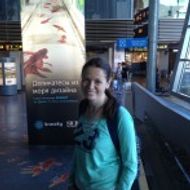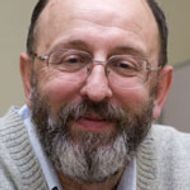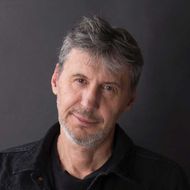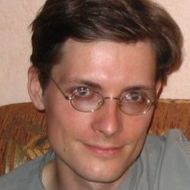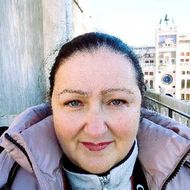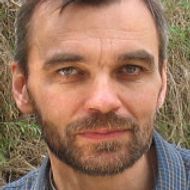- A
- A
- A
- ABC
- ABC
- ABC
- А
- А
- А
- А
- А
- HSE University
- Faculties
- Faculty of Mathematics
- News
- Faculty of Mathematics Alumnus about Alma Mater and Doctoral Studies at Leiden University
-
-
Departments
- International Laboratories
-
Educational Programmes
- Bachelor's Programmes
- Master's Programmes
- Doctoral Programmes
- Math in Moscow Programme
- REM and Summer University
-
Faculty
119048Moscow, Usacheva str., 6
phone/fax: +7 (495) 624-26-16
phone: +7 (495) 916-89-05
e-mail: math@hse.ru

Faculty of Mathematics Alumnus about Alma Mater and Doctoral Studies at Leiden University
— Why did you decide to apply for the HSE Faculty of Mathematics?
— Honestly, I don’t have a clear answer to this question. I’d known since secondary school that I wanted to study mathematics, but when I was applying for university in 2008, the HSE Faculty of Mathematics was only just being formed. We were the first students of the faculty. Of course, that meant that none of the applicants had any information about how and what we would be taught at the faculty. Moreover, none of my friends knew about HSE at all seven years ago. That’s why my choice is mere serendipity. I simply passed all the examinations, saw my name on the lists, and brought my documents to the admissions committee.
— Did your studies at HSE influence your life choices? What was the most memorable thing during your studies?
— Yes, definitely. If there had been no Faculty of Mathematics in my life, I wouldn’t be here talking about mathematics. Most of my classmates at school easily entered the technical departments of leading Russian universities. Seven of my classmates enrolled in Moscow State University. Unfortunately, almost none of them still want to be academics. At the same time, five students from school 179 enrolled in the Faculty of Mathematics at HSE that same year. Three of them graduated from the faculty, and all of them are still deeply involved in mathematics today.
— Which lecturers do you still remember today?
— I remember everyone who taught me. I remember those who taught me during the first years of study with particular warmness, including S.M. Lvovsky, Yu.M. Burman, G.L. Rybnikov, O.V. Schwarzman, and many others.
— Where did you continue your education after the undergraduate programme? What fields of mathematics are the most interesting for you? When did you decide that this is what you are interested in?
— After my undergraduate course, I continued on the Faculty of Mathematics master’s programme. I’m interested in various fields of mathematics, but number theory is my main area of interest. I realized I wanted to study arithmetic during my first years of university studies, thanks to my academic supervisor, Alexey Zykin, who I worked closely with from when he started working at the faculty in 2009 until my departure.
— What requirements did the Leiden University demand for doctoral applicants? What knowledge and skills were useful for you in the doctoral programme and what were you lacking?
— The requirements were standard for most Western doctoral programmes: knowledge of the subject and the desire to study. Formally, this means a big batch of documents that includes a CV, recommendations from professors, grade records, language certificates, various research papers, and so on. I had to pass a couple of interviews in the process of admission. Speaking about the knowledge and skills that I was lacking, it’s difficult to say. It seems that I didn’t have any particular problems as regards to this.
— Could you tell us more about your university and the research topic on which you are working?
— I’m studying at Leiden University. Leiden is a small city in the Netherlands located right between The Hague and Amsterdam. The university has a rich history: it was founded in 1575. The problem I am working on is related to L functions in various representations of absolute Galois group of global fields. Speaking more simply, my problem is an arithmetic analogue of the following classical geometry problem: is it possible to hear the form of a drum? Or more formally, is it possible to recreate a surface if you know the spectrum of the Laplace operator on it?
— How are your studies going? Is it different from studying at HSE?
— I’m working on my problem most of the time. Leiden turned out to be a good place for those interested in number theory. More than half the people at the department are involved in arithmetic, so if you have a question regarding arithmetic, you always can find an expert who can help you understand the issue quickly. Comparing Western and the Russian schools, I would say that each of them has their own advantages, but for different levels of education. HSE’s undergraduate programme provides a very good foundation, which is, in my view, much more substantial than at most Western universities. On the other hand, Moscow lacks good doctoral schools (in broader sense) in many areas of mathematics. I think that it will be difficult for HSE alone to fix this situation radically.
— Do you see your classmates often?
— I regularly see some of my friends, although I see some of them more rarely than I would like to. About 10 of my classmates went to study and work overseas, mostly to the U.S. Many of them left Moscow to return to their hometowns. And I myself don’t spend much time in Moscow these days.
— Do you have any leisure time, apart from your studies? What do you do?
— There is just about enough leisure time, but I can’t say there is plenty of it. I try to keep fit. Sport helps to release the mental stress accumulated during the day.
— What advice would you give to future generations of HSE mathematicians, today’s students?
— Study only for yourself. Not for grades, bursaries, or approval from teachers or parents. All these things don’t matter. Set your own goals and try to find solutions to them, try to find something that really engages you. Most importantly, it should be interesting for you. Otherwise, mathematical studies will turn your life into unbearable torture.
— Do you regret choosing this field of work?
— I think you can’t regret it: you are either into science, or not.
— Do you have the main goal in life? What are your future plans?
— It’s early to talk about it. First, I have to write my thesis, and only then think about future plans.
- About
- About
- Key Figures & Facts
- Sustainability at HSE University
- Faculties & Departments
- International Partnerships
- Faculty & Staff
- HSE Buildings
- HSE University for Persons with Disabilities
- Public Enquiries
- Studies
- Admissions
- Programme Catalogue
- Undergraduate
- Graduate
- Exchange Programmes
- Summer Schools
- Semester in Moscow
- Business Internship
- © HSE University 1993–2026 Contacts Copyright Privacy Policy Site Map
- Edit
